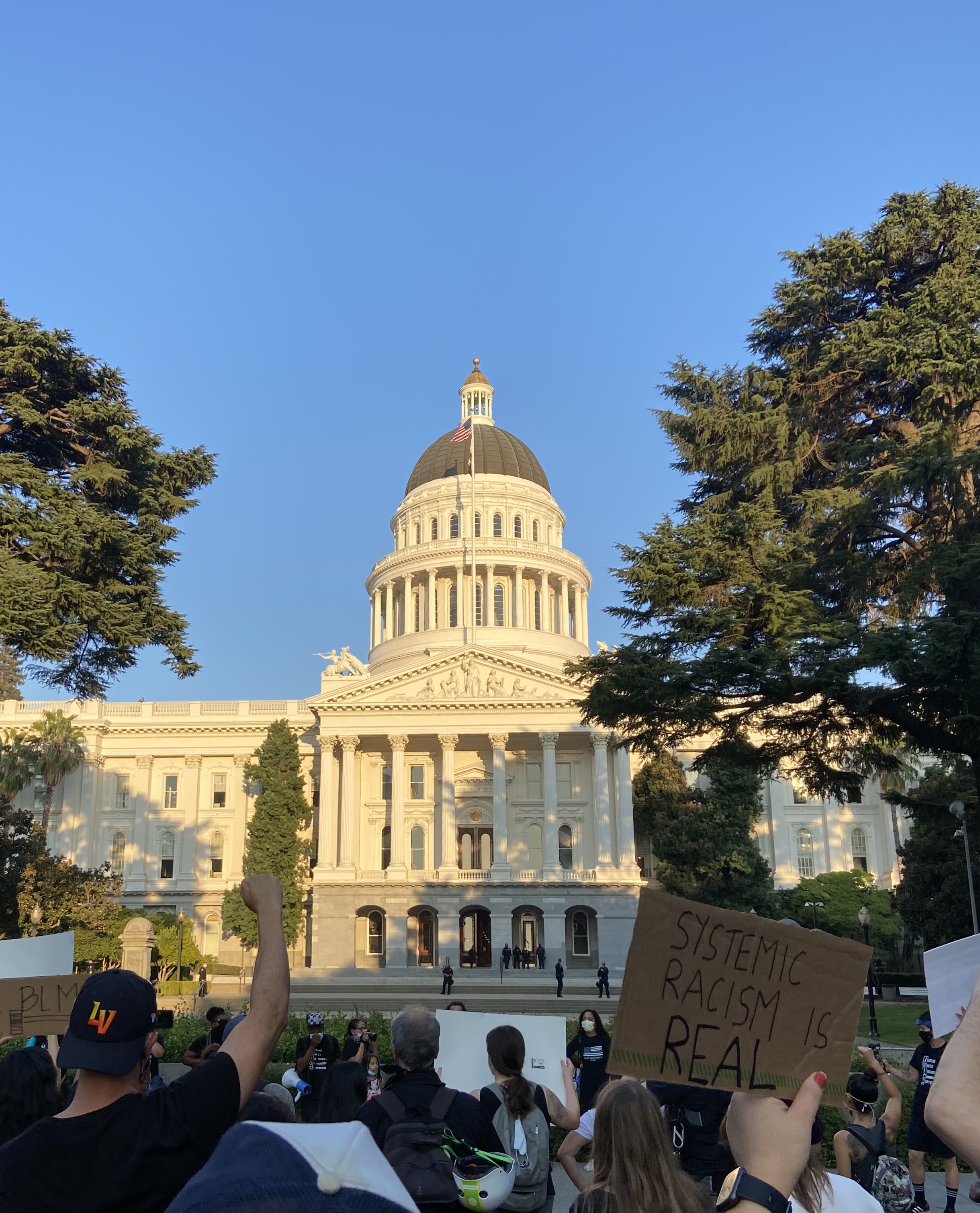In 2019, I was a starry-eyed California Sea Grant applicant who could not have imagined how 2020 would unfold. I moved to Sacramento in January, excited to begin my fellowship at the Delta Stewardship Council. I had no idea that my arrival would coincide with that of the COVID-19 pandemic, and that we would soon be reckoning with multiple crises - some new, and some old.
In the wake of George Floyd’s death in late May, the country plunged into what NPR has termed the “Summer of Racial Reckoning.” Though we know that racism is nothing new, urgent movements around the world shed light on the long history of institutionalized racism and the extent of its influence. Many who were grappling with this information began to see how all our lives and work are affected. Our feeds have been filled with information that we are unable to ignore about disproportionate burdens borne by communities of color, such as police violence, environmental racism, and both economic and health impacts from COVID-19.
 We’ve also learned about the multitude of ways in which these burdens are interconnected. To name just a few:
We’ve also learned about the multitude of ways in which these burdens are interconnected. To name just a few:
- Black Americans are dying from COVID-19 at twice the rate of white Americans, in part due to a higher risk of exposure to pollution that causes asthma, a co-morbidity for COVID-19.
- Marginalized communities have contributed the least to climate change overall, but are expected to experience the effects “first and worst.” For example, historically redlined districts are on average 5 °F hotter than non-redlined districts, making them more susceptible to impacts from climate change.
- Social inequalities such as racism and classism have an impact on biodiversity and ecological health of non-human plants and animals in urban environments.
The term “environmental justice” was coined several decades ago, and has become a burgeoning movement. The concept is focused on the equal distribution of environmental burdens and benefits, and recognizes the inextricable nature of racism and the environment. In recent months, more national attention has been paid to the concept of environmental justice along with increased recognition that climate change is also a racial justice problem.
Organizations are also connecting the dots between climate and environmental justice during this moment of national reckoning, and have begun to understand that environmentalism has never been exempt from racism. Climate activist groups, which have long been on the sidelines of racial equality movements, are finally embracing the fight against environmental injustice. Renowned environmental organizations are recognizing the legacy of white supremacy embedded in their structure, working to increase BIPOC representation in leadership positions, and spearhead diversity, equity and inclusion efforts.
As a California Sea Grant state fellow, it’s been necessary to figure out where my work fits into this movement. There are small and large ways we can make an impact, from inquiring about how an organization plans to increase diversity in recruitment pools, to ensuring that equity is a consideration in planning and management.
At the Delta Stewardship Council, I’ve been a part of their in-depth climate change vulnerability assessment, Delta Adapts. The Sacramento-San Joaquin Delta is an ecologically crucial region (it provides two-thirds of California’s water supply!) home to half a million residents, with a rich and controversial history. The goal of Delta Adapts is to build climate resilience in delta communities through analysis of both environmental and social stressors. I contributed to the quantitative side of the initiative through analyses of potential climate change impacts on storm surge, water supply, and flood risk zones. In addition, I’ve observed how a state agency deliberately incorporates environmental equity and justice into their science-based adaptation planning.
Assessing social vulnerability and inequity are key components of the project, as understanding disparate climate impacts is necessary for building resilience at the community and regional levels. Through this effort, I have learned about the cultural heritage of the delta, engaged with community-based organizations and regional environmental justice movements, and participated in workshops and webinars on climate adaptation planning with an equity lens. I also helped create a tool to visualize Social Vulnerability Index (SOVI) indicators to use for communication and planning.
As stewards and managers of California resources, it is essential that we understand the unique strengths of and challenges facing the communities in which we work. In this moment, we must ensure that our environmentalism is intersectional and promote the voices and needs of marginalized people. These efforts are essential to building equitable adaptation strategies and achieving both racial and climate justice—along with recognizing that they are one and the same.




